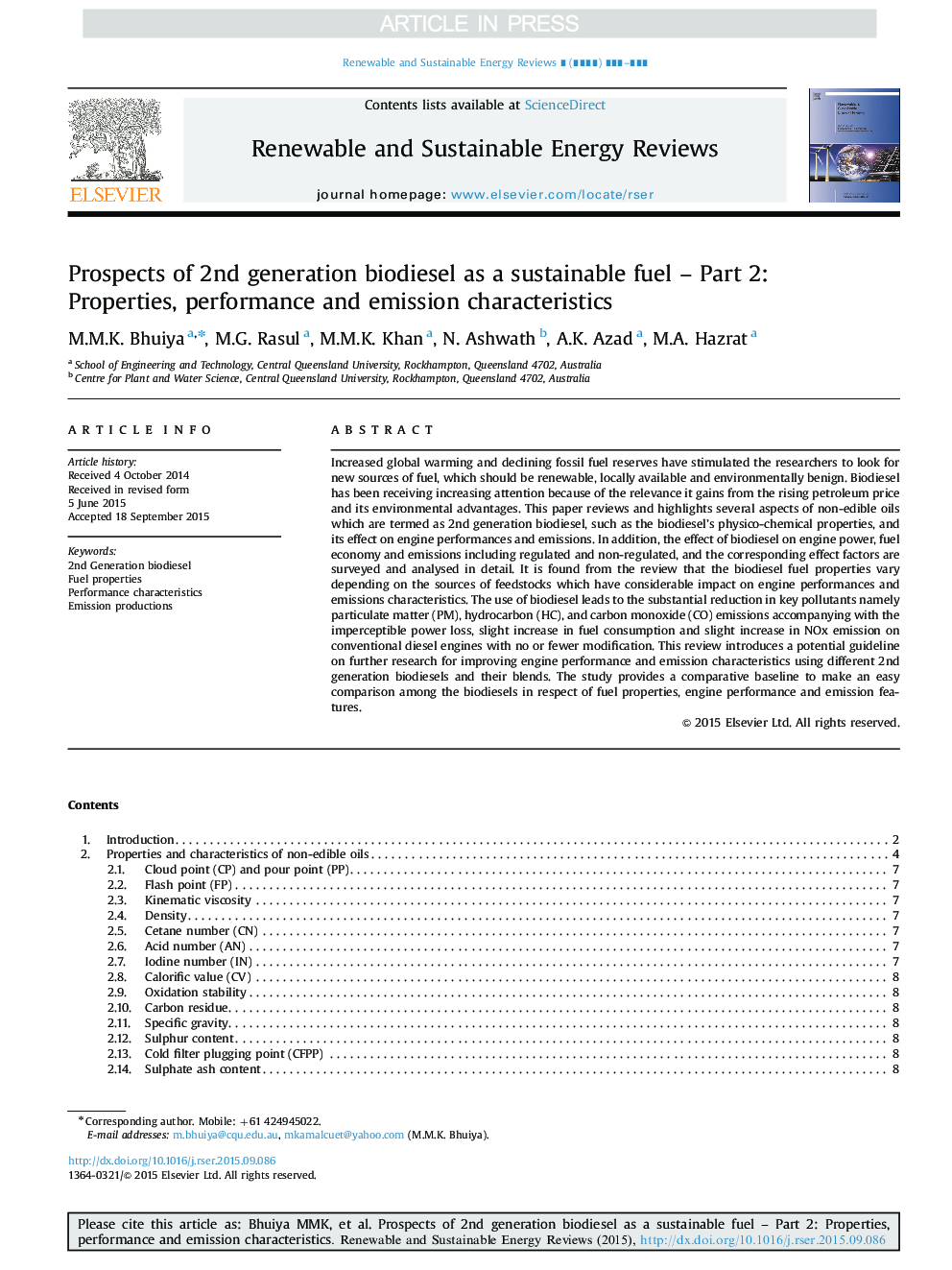| Article ID | Journal | Published Year | Pages | File Type |
|---|---|---|---|---|
| 8115462 | Renewable and Sustainable Energy Reviews | 2016 | 18 Pages |
Abstract
Increased global warming and declining fossil fuel reserves have stimulated the researchers to look for new sources of fuel, which should be renewable, locally available and environmentally benign. Biodiesel has been receiving increasing attention because of the relevance it gains from the rising petroleum price and its environmental advantages. This paper reviews and highlights several aspects of non-edible oils which are termed as 2nd generation biodiesel, such as the biodiesel's physico-chemical properties, and its effect on engine performances and emissions. In addition, the effect of biodiesel on engine power, fuel economy and emissions including regulated and non-regulated, and the corresponding effect factors are surveyed and analysed in detail. It is found from the review that the biodiesel fuel properties vary depending on the sources of feedstocks which have considerable impact on engine performances and emissions characteristics. The use of biodiesel leads to the substantial reduction in key pollutants namely particulate matter (PM), hydrocarbon (HC), and carbon monoxide (CO) emissions accompanying with the imperceptible power loss, slight increase in fuel consumption and slight increase in NOx emission on conventional diesel engines with no or fewer modification. This review introduces a potential guideline on further research for improving engine performance and emission characteristics using different 2nd generation biodiesels and their blends. The study provides a comparative baseline to make an easy comparison among the biodiesels in respect of fuel properties, engine performance and emission features.
Related Topics
Physical Sciences and Engineering
Energy
Renewable Energy, Sustainability and the Environment
Authors
M.M.K. Bhuiya, M.G. Rasul, M.M.K. Khan, N. Ashwath, A.K. Azad, M.A. Hazrat,
